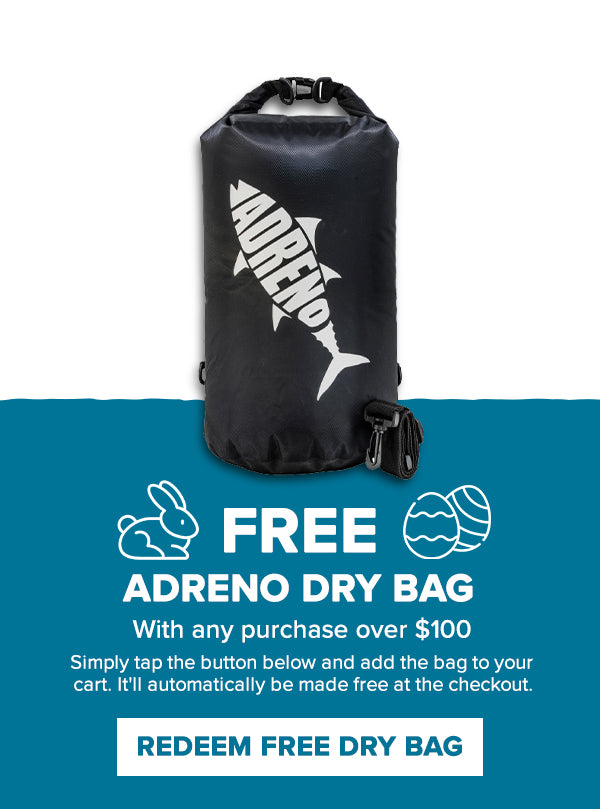Catch & Cook: Ethical Spearfishing in the Age of Social Media
August 28, 2019 5 min read

This article is written by a representative from the Monterey Catch and Cook Competition, which is a family-friendly event organized by ocean lovers to raise funds for ocean conservation while encouraging sustainable fishing practices. This event is based in Monterey Bay, California.
SPEAROS HAVE A NATURAL CONSERVATION ETHIC
In the age of social media, personal branding, and Instagram-worthy catches, modern spearos seem to come in two flavors. On the one hand, you see photos of spearos proudly showing off trophy fish or ridiculously full stringers that they never intend to eat. On the other end of the spectrum, you see a guy holding an average fish with a fascinating story about the prowess of the hunt, 9 more pictures of him processing the fish down to its last morsel of hard to reach head meat (enough to impress even the most efficient ocean floor scavengers), and a few snaps of friends and family enjoying a mouthwatering meal.
I've heard from a number of seasoned spearos from glory days past about how passé and destructive spearos can be—particularly in a tournament setting, where few may be conscious of the local fishery impact of dozens of divers shooting stringers of heavy fish (usually the best breeders) for the weigh in. At the same tick of the clock, my own competitive nature that vies for bragging rights stimulates a bit of petty jealousy when someone else gets that podium finish—thanks, testosterone. Yet spearos, as a group, consistently hold ourselves above other forms of fishing. We’re more selective. We don’t hammer fisheries with the scale and ruthless efficiency of commercial fleets. By-catch is minimal to non-existent, and we don’t routinely leave tackle drifting in the current. In short, spearos by and large have, and have always had, a conservation ethic.
But to the non-spearfishing public, it can be difficult to square that ethic with the glory shots they see on social media. And it’s not hard to see how, without context, it can all seem a bit oxymoronic. So what separates those spearos who present the conservation ethic from those who do not? It really comes down to those that put great emphasis and priority on the impact that we collectively have on the marine environment that provides us hundreds of hours of joy and hundreds of pounds of fish, and those that don't. Now, if you're currently modifying your pitch fork by adding some sling rubber and aiming it in my direction, give me a moment to explain.
HOW THE BALL GOT ROLLING
Not so many moons ago in Northern California, a few influential spearos, including Instagram warriors, conservational committee members and salty marine biologists, had a conversation about how we can use our various platforms to accomplish a couple of common goals. We believe that with a little intentionality, spearos can help lead the charge to save our oceans. It's not just over-spearing/over-hooking/over-netting that’s a problem; it's how we sea-lovers treat our ocean throughout everyday actions.
A recent study by the Monterey Bay Aquarium and Monterey Bay Aquarium Research Institute found microplastics from the surface to the ocean floor 1000 meters below (source), which has now caused my wife to refuse us using any single-use plastics. Every year, 8-10 million metric tons of plastics enter our ocean on top of the estimated 150 million metric tons that currently circulate our marine environments. It's not just in the water, it's in the animals and organisms too. Then there are the once-lush kelp forests of the Pacific Coast. Longtime home to a massive marine ecosystem, these habitats are rapidly declining due to an uncontrolled explosion of purple urchin populations.
Thankfully, people like Josh Russo and the Watermen's Alliance are devoting their life efforts to combat this. Josh just got back from Washington, D.C., after talking with representatives about climate change issues and marine environments. We all have a part to play in this and thankfully we can do much of it while breathing up before our next drop.
THE FINE PRINT
With a little brainstorming and sound boarding, I had an idea to host a competition that brings together many of our passions—from hunting to cooking—and to do it in a way that is environment friendly. Instead of forcing the biased and polarized message down the snorkels of ocean enthusiasts, I wanted to invite them into a way of harvesting fish while beneficially interacting with the marine environment. It encourages being very specific in your targeted fish, not taking more than you need, processing more of the fish than just the fillets, and making a beautiful meal out of it. There will be a panel of professional chefs to critique the meal being made in catch-and-cook style, on presentation, cooking technique, fish use, and of course, taste.
For some reason, many Americans, compared to other cultures, have forgotten that there is more to fish than just the fillets. The bones make excellent stock. The collars and head often have the best meat. Even some of the organs and skin can be added to a dish for tasty flair. Salmon sushi with belly skin chicharrones and micro greens (recipe) Please invite me over for that meal…but I digress.
I am amazed at how much traction this event already has. We have huge sponsors like Omer, DiveR, Suunto and Bamboo Reef and fantastic prizes well into the thousands of dollars range. We decided to donate all the proceeds to Save Our Shores (SOS - saveourshores.org) – a Monterey-based nonprofit organization focused on the protection and conservation of our local marine environment for the past 40 years. SOS will also be coordinating a free-to-participate beach clean-up for anyone to join.
Not only will we have things like beautiful custom trophies, kayaks, roller guns, carbon fins, kitchen knife sets and custom freedive wetsuits for those that podium in the cooking portion of the competition, but we will also have great prizes for those who pick up the most trash at the beach clean-up or harvest the most purple sea urchins. There will be a big open-to-the-public raffle with a ton of epic prizes, and we will even have a gyotaku (fish printing) presentation to teach people about other fun and gorgeous ways to memorialize their catches.
CALL TO ARMS (AND SLINGS)
While the vehicle of the message is a family-friendly competition, the goal is to invite people into a way of thinking, cooking, and treating our ocean—with intentionality and with future dive generations in mind. This is something we can and should get behind, no matter where you live and how salty your water is. Because of this, we've made the specifics of the competition public (event details) and are willing to encourage and discuss the event should you want to put on one in your ocean cove of the world—I'm looking at you, Australia. Let's work together to advocate for cleaner oceans, healthier fisheries, and responsible spearing ethics —especially to the next generation of spearos. #montereycatchandcook


